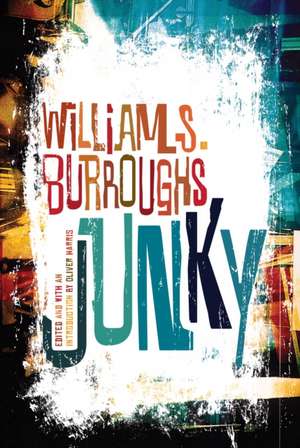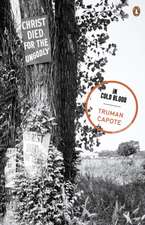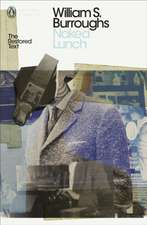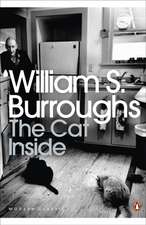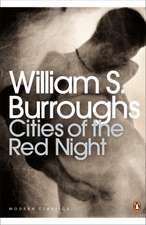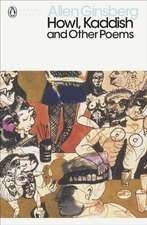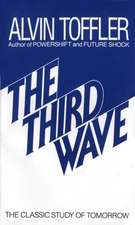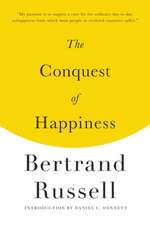Junky: The Definitive Text of "Junk"
Autor William S. Burroughs Editat de Oliver Harrisen Limba Engleză Paperback – 12 noi 2012
Junk is not, like alcohol or a weed, a means to increased enjoyment of life. Junk is not a kick. It is a way of life.
In his debut novel, Junky, Burroughs fictionalized his experiences using and peddling heroin and other drugs in the 1950s into a work that reads like a field report from the underworld of post-war America. The Burroughs-like protagonist of the novel, Bill Lee, see-saws between periods of addiction and rehab, using a panoply of substances including heroin, cocaine, marijuana, paregoric (a weak tincture of opium) and goof balls (barbiturate), amongst others. For this definitive edition, renowned Burroughs scholar Oliver Harris has gone back to archival typescripts to re-created the author's original text word by word. From the tenements of New York to the queer bars of New Orleans, Junky takes the reader into a world at once long-forgotten and still with us today. Burroughs’s first novel is a cult classic and a critical part of his oeuvre.
In his debut novel, Junky, Burroughs fictionalized his experiences using and peddling heroin and other drugs in the 1950s into a work that reads like a field report from the underworld of post-war America. The Burroughs-like protagonist of the novel, Bill Lee, see-saws between periods of addiction and rehab, using a panoply of substances including heroin, cocaine, marijuana, paregoric (a weak tincture of opium) and goof balls (barbiturate), amongst others. For this definitive edition, renowned Burroughs scholar Oliver Harris has gone back to archival typescripts to re-created the author's original text word by word. From the tenements of New York to the queer bars of New Orleans, Junky takes the reader into a world at once long-forgotten and still with us today. Burroughs’s first novel is a cult classic and a critical part of his oeuvre.
| Toate formatele și edițiile | Preț | Express |
|---|---|---|
| Paperback (3) | 45.69 lei 24-30 zile | +13.58 lei 5-11 zile |
| Penguin Books – 4 apr 2012 | 45.69 lei 24-30 zile | +13.58 lei 5-11 zile |
| Penguin Books – 5 noi 2008 | 47.25 lei 24-30 zile | +16.16 lei 5-11 zile |
| Grove Atlantic – 12 noi 2012 | 90.95 lei 3-5 săpt. |
Preț: 90.95 lei
Nou
Puncte Express: 136
Preț estimativ în valută:
17.41€ • 18.10$ • 14.37£
17.41€ • 18.10$ • 14.37£
Carte disponibilă
Livrare economică 24 martie-07 aprilie
Preluare comenzi: 021 569.72.76
Specificații
ISBN-13: 9780802120427
ISBN-10: 0802120423
Pagini: 197
Dimensiuni: 137 x 208 x 18 mm
Greutate: 0.23 kg
Editura: Grove Atlantic
ISBN-10: 0802120423
Pagini: 197
Dimensiuni: 137 x 208 x 18 mm
Greutate: 0.23 kg
Editura: Grove Atlantic
Recenzii
"Reads today as fresh and unvarnished as it ever has."-Will Self on Junky
“Of all the Beat Generation writers, William S. Burroughs was the most dangerous. . . . He was anarchy’s double agent, an implacable enemy of conformity and of all agencies of control-from government to opiates.”—Rolling Stone
“The most important writer to emerge since World War II. . . . For his sheer visionary power, and for his humor, I admire Burroughs more than any living writer, and most of those who are dead.”—J.G. Ballard
“William was a Shootist. He shot like he wrote—with extreme precision and no fear.”—Hunter S. Thompson
“A book of great beauty . . . . Burroughs is the only American novelist living today who may conceivably be possessed by genius.” —Norman Mailer
“Ever since Naked Lunch . . . Burroughs has been ordained America’s most incendiary artist.”—Los Angeles Times
“Burroughs voice is hard, derisive, inventive, free, funny, serious, poetic, indelibly American.”—Joan Didion
“In 1953, at the height of American conformism and anti-communist hysteria, William S. Burroughs published Junky, an irresistible strung-out ode to the joys and perversities of drug addiction. . . . Junky eschews allegory for scrupulous realism. . . . More than anything else, Junky reads like a field guide to the American underworld.”—The Daily Beast
“Retro-cool, like something Don Draper might find in the Greenwich Village pad of that reefer-smoking painter he was seeing in the first season of Mad Men.”—Las Vegas Weekly on Naked Lunch
“A creator of grim fairy tales for adults, Burroughs spoke to our nightmare fears and, still worse, to our nightmare longings. . . . And more than any other postwar wordsmith, he bridged generations; popularity in the youth culture is greater now than during the heady days of the Beats.”—The Los Angeles Times Book Review
“Burroughs seems to revel in a new medium . . . a medium totally fantastic, spaceless, timeless, in which the normal sentence is fractured, the cosmic tries to push its way through the bawdry, and the author shakes the reader as a dog shakes a rat.”—Anthony Burgess on The Ticket That Exploded
“In Burroughs’ hands, writing reverts to acts of magic, as though he were making some enormous infernal encyclopedia of all the black impulses and acts that, once made, would shut the fiends away forever.”—The New York Times on The Ticket That Exploded
“Macabre, funny, reverberant, grotesque.”—The New York Review of Books on Nova Express
“Hypnotic; I wish I could quote, but it takes several pages to get high on this stuff. . . . Funny . . . outrageous along the lines of Burroughs’s well-established scatology. He can think of the wildest parodies of erotic exuberance and invent the weirdest places for demonstrating them.”—Harper’s Magazine on Nova Express
“One of the most interesting pieces of radical fiction we have.”—The Nation on The Soft Machine
“In Burroughs’ hands, writing reverts to acts of magic, as though he were making some enormous infernal encyclopedia of all the black impulses and acts that, once made, would shut the fiends away forever.”—The New York Times on The Wild Boys
“Of all the Beat Generation writers, William S. Burroughs was the most dangerous. . . . He was anarchy’s double agent, an implacable enemy of conformity and of all agencies of control-from government to opiates.”—Rolling Stone
“The most important writer to emerge since World War II. . . . For his sheer visionary power, and for his humor, I admire Burroughs more than any living writer, and most of those who are dead.”—J.G. Ballard
“William was a Shootist. He shot like he wrote—with extreme precision and no fear.”—Hunter S. Thompson
“A book of great beauty . . . . Burroughs is the only American novelist living today who may conceivably be possessed by genius.” —Norman Mailer
“Ever since Naked Lunch . . . Burroughs has been ordained America’s most incendiary artist.”—Los Angeles Times
“Burroughs voice is hard, derisive, inventive, free, funny, serious, poetic, indelibly American.”—Joan Didion
“In 1953, at the height of American conformism and anti-communist hysteria, William S. Burroughs published Junky, an irresistible strung-out ode to the joys and perversities of drug addiction. . . . Junky eschews allegory for scrupulous realism. . . . More than anything else, Junky reads like a field guide to the American underworld.”—The Daily Beast
“Retro-cool, like something Don Draper might find in the Greenwich Village pad of that reefer-smoking painter he was seeing in the first season of Mad Men.”—Las Vegas Weekly on Naked Lunch
“A creator of grim fairy tales for adults, Burroughs spoke to our nightmare fears and, still worse, to our nightmare longings. . . . And more than any other postwar wordsmith, he bridged generations; popularity in the youth culture is greater now than during the heady days of the Beats.”—The Los Angeles Times Book Review
“Burroughs seems to revel in a new medium . . . a medium totally fantastic, spaceless, timeless, in which the normal sentence is fractured, the cosmic tries to push its way through the bawdry, and the author shakes the reader as a dog shakes a rat.”—Anthony Burgess on The Ticket That Exploded
“In Burroughs’ hands, writing reverts to acts of magic, as though he were making some enormous infernal encyclopedia of all the black impulses and acts that, once made, would shut the fiends away forever.”—The New York Times on The Ticket That Exploded
“Macabre, funny, reverberant, grotesque.”—The New York Review of Books on Nova Express
“Hypnotic; I wish I could quote, but it takes several pages to get high on this stuff. . . . Funny . . . outrageous along the lines of Burroughs’s well-established scatology. He can think of the wildest parodies of erotic exuberance and invent the weirdest places for demonstrating them.”—Harper’s Magazine on Nova Express
“One of the most interesting pieces of radical fiction we have.”—The Nation on The Soft Machine
“In Burroughs’ hands, writing reverts to acts of magic, as though he were making some enormous infernal encyclopedia of all the black impulses and acts that, once made, would shut the fiends away forever.”—The New York Times on The Wild Boys
Notă biografică
William
S
Burroughs
(Author)
William S. Burroughs was born on February 5, 1914 in St Louis. In work and in life Burroughs expressed a lifelong subversion of the morality, politics and economics of modern America. To escape those conditions, and in particular his treatment as a homosexual and a drug-user, Burroughs left his homeland in 1950, and soon after began writing. By the time of his death he was widely recognised as one of the most politically trenchant, culturally influential, and innovative artists of the twentieth century. His numerous books includeNaked Lunch, Junky, Queer, Nova Express, Interzone, The Wild Boys, The Ticket That Exploded and The Soft Machine. After living in Mexico City, Tangier, Paris, and London, Burroughs finally returned to America in 1974. He died in 1997.
Oliver Harris (Introducer)
Oliver Harris is professor of American literature at Keele University and the editor ofThe Letters of William S. Burroughs, 1945-1959(1993),Junky: the Definitive Text of "Junk"(2003),The Yage Letters Redux(2006), andEverything Lost: The Latin American Notebook of William S. Burroughs(2008). He has published articles on film noir, the epistolary, and Beat Generation writing and the bookWilliam Burroughs and the Secret of Fascination(2003). He is currently co-editingNaked Lunch@50: Anniversary Essays(2009) and working on a new twenty-fifth anniversary edition ofQueer(forthcoming in 2010).
William S. Burroughs was born on February 5, 1914 in St Louis. In work and in life Burroughs expressed a lifelong subversion of the morality, politics and economics of modern America. To escape those conditions, and in particular his treatment as a homosexual and a drug-user, Burroughs left his homeland in 1950, and soon after began writing. By the time of his death he was widely recognised as one of the most politically trenchant, culturally influential, and innovative artists of the twentieth century. His numerous books includeNaked Lunch, Junky, Queer, Nova Express, Interzone, The Wild Boys, The Ticket That Exploded and The Soft Machine. After living in Mexico City, Tangier, Paris, and London, Burroughs finally returned to America in 1974. He died in 1997.
Oliver Harris (Introducer)
Oliver Harris is professor of American literature at Keele University and the editor ofThe Letters of William S. Burroughs, 1945-1959(1993),Junky: the Definitive Text of "Junk"(2003),The Yage Letters Redux(2006), andEverything Lost: The Latin American Notebook of William S. Burroughs(2008). He has published articles on film noir, the epistolary, and Beat Generation writing and the bookWilliam Burroughs and the Secret of Fascination(2003). He is currently co-editingNaked Lunch@50: Anniversary Essays(2009) and working on a new twenty-fifth anniversary edition ofQueer(forthcoming in 2010).
Descriere
Descriere de la o altă ediție sau format:
William Burroughs, legendary drug addict, founder member of the Beats and author of Naked Lunch, relates with unflinching realism the addict's life: from initial heroin bliss to an unabated hunger for the needle, and the horrors of cold turkey and back again.
William Burroughs, legendary drug addict, founder member of the Beats and author of Naked Lunch, relates with unflinching realism the addict's life: from initial heroin bliss to an unabated hunger for the needle, and the horrors of cold turkey and back again.
